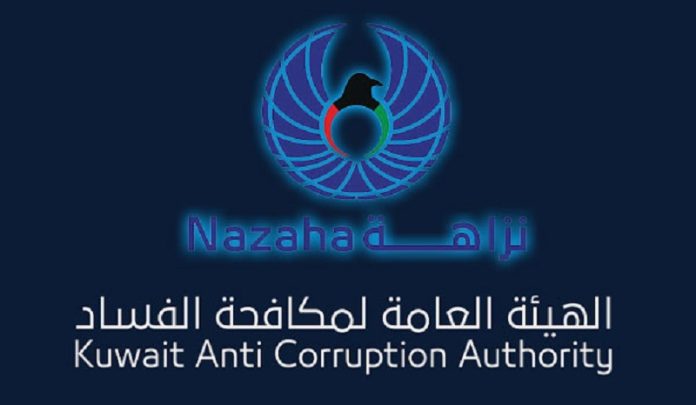The Public Anti-Corruption Authority (Nazaha) revealed 98 crimes of waste and theft of public money and infringements on the state’s resources during 2021, this is in addition to reports it received of money laundering, illicit gain, abuse of influence and receiving bribery.
The second report of the National Anti-Corruption Strategy, according to a local Arabic daily, 39 reports were registered through monitoring processes, 14 from legal persons and 29 from natural persons, pointing out that 28 judges and 46 officials in state agencies did not submit financial disclosure statements during the past year.
The report contained the size of the changes in the implementation of delayed initiatives and joint government work, to implement the work items required to promote reform steps and the most prominent risks that could face Kuwait.
The report, which Al-Qabas obtained a copy of, turned to 5 risks facing Kuwait, including weak technical governance, which is considered the first risk according to the 2022 report of the World Economic Forum, which reflects the extent of the state’s weak technical governance due to poor technical coordination between the components of the state and its agencies.
Among the risks are also the explosion of the asset or property bubble, the weakness of the social security system, the weak government control over strategic wealth, in addition to environmental pollution and epidemic diseases.
The report warned of the continuation of corruption and infringements on public money and the country’s capabilities.
Figures from the Anti-Corruption report show
* 51% achievement rate in the anti-corruption strategy
* 47% success rate of the initiatives included in the “Integrity” strategy
* 5 risks faced by state agencies due to poor planning
* 39 communications recorded by “Nazaha” through monitoring operations during 2021
* 14 legal persons submitted reports of suspicions of corruption and theft of public money
Meanwhile, the Chairman of the Supreme Committee for the Leadership and Coordination of the National Anti-Corruption Strategy and Chairman of the Integrity Commission, Eng. Abdulaziz Al-Ibrahim, stressed the keenness to issue an annual report on the performance indicators of the entities and the extent of their commitment during the time of the strategy, risks and challenges.
Al-Ibrahim touched on the initiative of the legislative authority to complete the legal system to enhance integrity and combat corruption, by approving a package of legislation presented to the Council and its specialized committees.

















